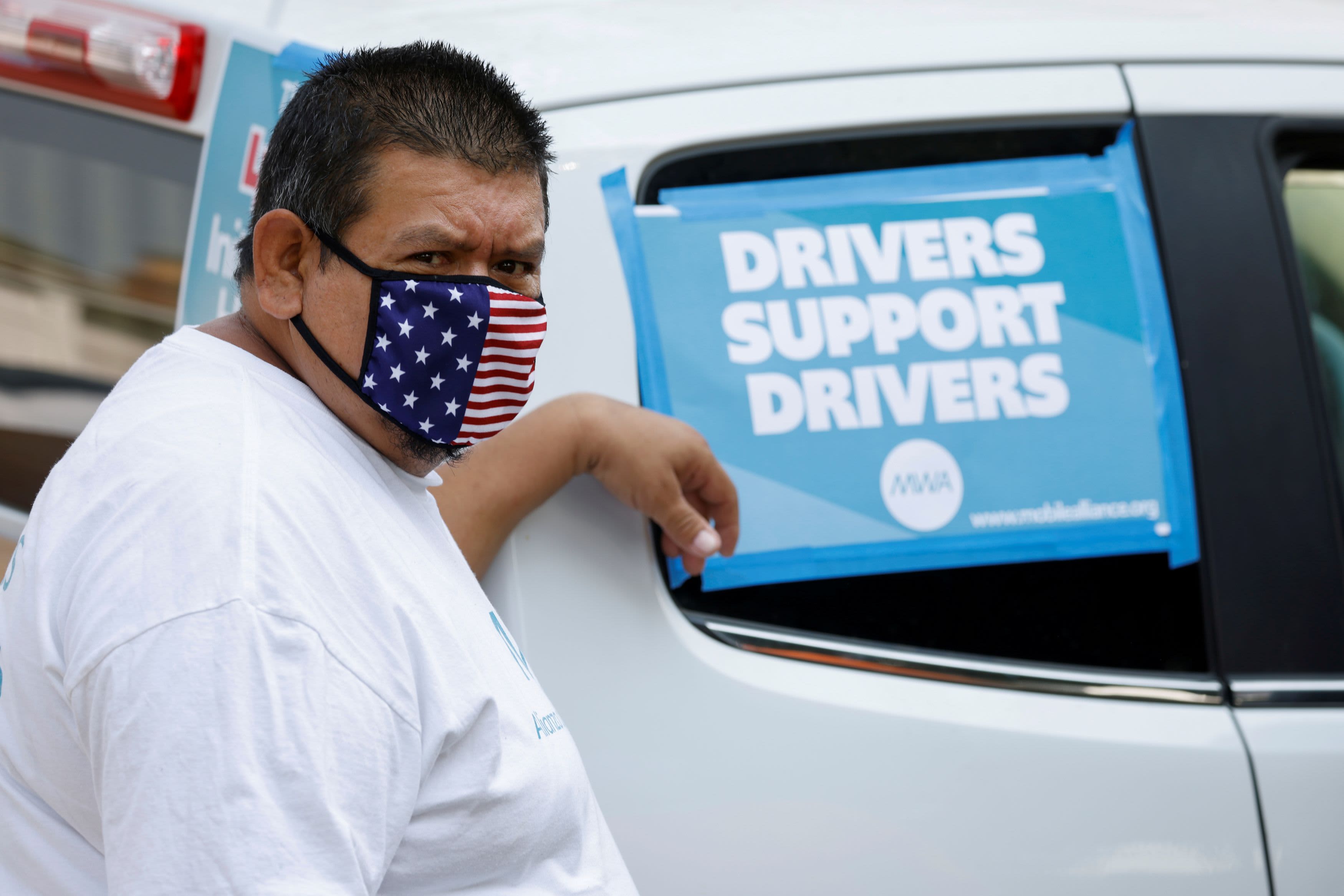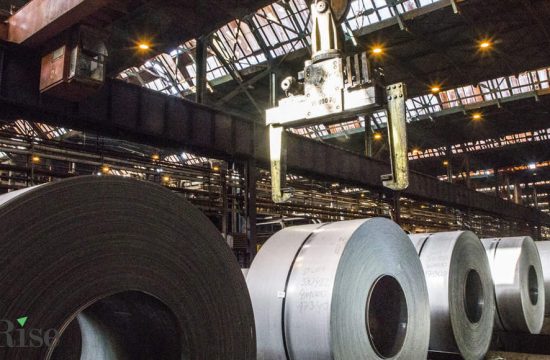
California voters gave Uber and Lyft a big win in the fight over the future of gig economy workers, approving Proposition 22, but it is not only the tech giants and freelancers delivering people and food who expect major repercussions from the ballot decision.
Independent contractors across the country might breathe a sigh of relief in that California voters sent a message to the state’s legislators that AB 5, the law which was enacted to classify freelancers as employees, is widely unpopular. Other states, including New Jersey, Massachusetts, New York and Illinois, have been among those considering crafting legislation to force companies to deem freelancers as employees. Now those states can more clearly see the risks, experts say.
“It won’t go away, but it will be revisited and look at much more closely,” said Miles Everson, CEO of MBO Partners, which is a consultant to the independent contractor community. The overriding message that Prop 22 sends is that “one size fits all” legislation which lumps all freelance professions together doesn’t work and won’t be popular with voters.
AB 5’s problems were already well-known, as California was forced to create roughly 100 carve-outs for various professions to be exempt from the law. That included many unskilled workers “in the zone of the big guys taking advantage of the little guys” Everson said, but also the independent contractors a firm like MBO Partners serves: solo entrepreneurs building their own businesses, making six-figures and holding advanced education degrees in many cases.
“It’s an important societal issue,” Everson, whose firm supports a more detailed set of self-employed guidelines, said, noting more people are working as freelancers today and growth continues, but AB 5 has not been a good solution. “This is not just about Uber and Lyft. It’s about people who want to build their own business. … High-end knowledge workers generating six figures should be happy about the decision.”
“But it’s far from over,” he said. “Working populations have different needs and characteristics and you need to separate that out for different cohorts of workers, and unto they do it, there will be more swings in the pendulum. It’s a step towards compromise, but a much larger step highlighting the need to not generalize legislation.”
Steve King, a partner at small business and independent contractor consulting firm Emergent Research, thinks it will influence action in other states. “It will dampen enthusiasm for AB5-like laws elsewhere and I think will reduce chances of the [current version of the] Pro Act at the federal level, even if Biden wins,” he said. “Prop 22 won pretty big.”
For freelancers based outside of California this result is useful, he said, because it is another reason to not pass an AB 5-type law unless lawmakers are very careful with it. That will deter other states from going down the AB 5 path. “This vote shows you will get pushback wherever they would try another AB 5. This was a pretty clear slap in the face of AB 5,” he said, adding, “had it failed, it would have been much more likely other states go with an AB 5.”
Misclassification of workers remains a serious issue, and freelance, which now represents 12% to 15% of the labor force in the U.S., will continue to grow as part of the labor force and laws around the country remain confusing.
Kim Kavin, co-founder of the non-partisan Fight for Freelancers group, and a freelance writer and editor based in New Jersey, said, “Everybody is celebrating today. All the mayhem in federal election results … we are just thrilled about this one result.”
She added that while all the focus is on the win for Uber and Lyft, “we see this as a major win in a bigger battle, we see the voters standing with us. … We sure hope it has an impact on New Jersey policymakers … and at the federal level.”
King favors a well-crafted federal law to provide clarity. A version of the Pro Act, which has been criticized by the freelance industry in its current form, which is written to be more freelancer-friendly and identify truly independent contractors, is needed, he said.
“The most productive way would be at the federal level, even if not enacted as law,” Everson said, adding Department of Labor guidelines can help, though they can also change from administration to administration. President Trump‘s DOL has proposed new worker misclassification guidelines.
Within California, the impact of Prop 22 is limited for now. While traditional logistics companies could be next to make the case that they are app-based, like an Uber, many freelancers across professions are still subject to AB 5 and that won’t change.
“AB 5 has just been a mess. It was well-intentioned … but was poorly written and vague,” King said.
But he is more hesitant to say the decision is a clear-cut political win for all freelancers, though he expects many will make that case. He said Prop 22 was too narrow, and too focused on drivers, to have certainty that it will define the fight to come over freelance. It does provide talking points to political interests that want to show voters don’t want workers forced into traditional jobs. But he said his firm’s survey work shows that the average voter really did view Prop 22 as an “Uber/Lyft” issue.
California “still a mess” for freelancers
Within California, the situation for many freelancers, “is still a mess,” according to King. And rather than lead state legislators to reconsider their stance, it could “just make a bunch of politicians madder,” he said.
Many of the repercussions of AB 5 already in California will remain issues, such as companies scared about violating AB 5 and getting hit with big fines opting for full-time employees or to hire freelancers out of the state or out of the country. And for freelancers in California, a very confusing law remains.
“AB 5 is still the law,” he said, with a new carve-out for drivers. “And it is the weirdest law ever written maybe in California, and affects so many people.”
Harry Campbell, known as The RideShare Guy and a consultant to gig economy workers, said his survey work among drivers showed that many do want to be independent contractors. A September survey found 60% of drivers in favor of Prop 22. Those that will benefit the most from Prop 22 are part-time drivers who value the flexibility of the hours, he said.
Emergent Research’s King said amongst the most-effective Uber and Lyft-sponsored ads were those featuring drivers speaking in support of Prop 22.
“It’s easy to point to the sheer amount of money spent by the ‘Yes on 22’ coalition and say that was the reason it passed but I’m not so sure,” Campbell said. He noted that spending on past ballot initiatives had actually hurt them in places like Austin where voters turned out against the companies and many felt they were bombarded with messaging.
The results don’t bode well for similar efforts in other states supported by traditional labor unions, at least related to his world of drivers. “Labor took a swing for the fences in California with AB 5 and now the companies have shown if they spend enough money, they can take their case to the voters and pass a proposition to keep drivers as independent contractors. I expect many states will work to find a compromise between labor and gig companies that keeps drivers classified as [independent contractors] ICs but affords them some benefits.”
The Independent Drivers Guild, an affiliate of the Machinists Union which represents 200,000 drivers on the East Coast, said in a statement on Wednesday that California’s experience should make “pro-worker” state legislatures take action, and it called out New York and New Jersey specifically. “Collective bargaining, not ballot measures and protracted legal battles, are the only real long-term solution for gig workers,” said Brendan Sexton, its executive director.
AB 5 is not a roadmap
King said there might be some moral victory for California freelancers, and the legislature more willing to do even more carve-outs, and a reduction in the aggressive of state enforcement of AB 5, but “the AB 5 problem remains.”
Jim Manley, a lawyer with the Pacific Legal Foundation, which is currently representing associations of journalists and photographers in an AB 5 case under appeal in California, said Prop 22 shows that voters agree with the backlash that has existed about AB 5 ever since it was proposed.
“We should leave it up to workers to decide on how to structure a business. … this is great news for rideshare companies, but it also sends a clear message from voters that they don’t support policies like AB 5, which is bad public policy.”
He said all the exemptions already added to the legislation show the lack of care that went into writing it, and that efforts like Prop 22 are not a long-term solution.
“My sense is voters want more worker freedom and don’t think the way to achieve it is through piecemeal carve-outs for industries,” Manley said, adding “if we go that route, we will continue down the same road we’ve been on.”
That implies industries with enough political pull or enough resources to mount a big lobbying battle will get their carve-outs, but “it doesn’t help freelance comedians who don’t have a coalition,” Manley said.
He does not expect the lawmakers who wrote AB 5 to admit mistakes in any more significant way than all of the exemptions they have had to add already, but he agreed with the other experts that it will make lawmakers beyond California more wary.
“The message Prop 22 sends is to pump the breaks on AB 5-type legislation and think more carefully about how your affecting the people you’re trying to help,” he said. “Policy makers need to take a look at what happened with Prop 22 and ask, is that the fight you want to have? The rest of the country can learn from California.”
New Jersey-based freelancer Kavin said worker misclassification is a big problem, and clarity at the federal level would help, but “AB 5 is not a roadmap.”
She said the Pro Act under consideration by Democratic leadership and supported by Biden represents the interests of unions like the AFL-CIO and the political powers have not even offered freelancers “a seat at the table” in crafting legislation that represents their interests.
“As big and expensive as Prop 22 was, hopefully it gets them to hear us,” she said.









